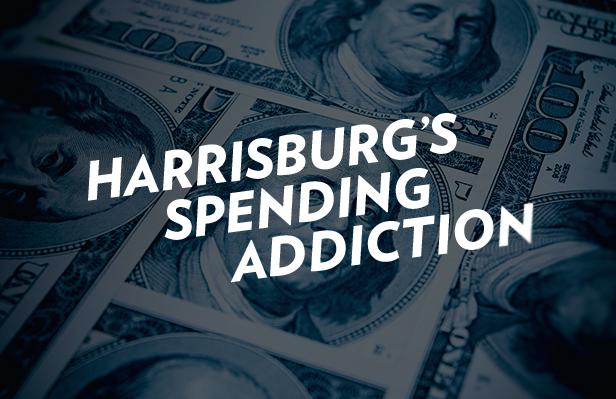Media

Lawmakers Show Signs of Budget Restraint
When state revenues outpace spending there’s always a temptation to spend more—in fact, even when revenues fall short, politicians often find a way to increase spending.
But Harrisburg is breaking with tradition this year, as several lawmakers call for spending restraint. They’ve understood the key to a balanced budget isn’t higher taxes, but reforming the budget process.
Yesterday, the Pa. House passed House Bills 855 and 920–923, a bill package focused on budget transparency and informed spending. Each of these bills would supply the General Assembly with reports and research to inform their appropriations process.
- HB 855 — (Rep. Struzzi) Updates the estimate of state revenues throughout the year so that the Secretary of the Budget can prepare funds in reserve to balance yearly expenditures.
- HB 920 — (Rep. Saylor) Requires a justification for waivers allowing state agencies to keep unused or lapsed funds instead of returning them to the General Fund.
- HB 921 — (Rep. Nelson) Requires reports of special fund (a.k.a. “shadow budget”) expenditures and commitments to be submitted to the Appropriations Committee of the House and Senate.
- HB 922 — (Rep. Delozier) Requires more information on budget appropriations, including:
- whether they are required by either state or federal law
- whether eligible program applicants must receive services regardless of fund availability
- whether state dollars are augmented by federal dollars
- HB 923 — (Rep. Brown) Requires any year-end “supplemental appropriations” request to submit a justification and several cost-saving suggestions/reforms to offset the expense and prevent future overruns. This year the Wolf administration is reportedly requesting $750 million in supplemental appropriations.
These policies reveal lawmakers’ unease over the careless and wasteful spending habits that have come to characterize Harrisburg’s budget cycle. They should complement this bill package by passing guardrails on state spending increases, known as the Taxpayer Protection Act (TPA).
Three different versions of TPA are working their way through the House and Senate, all of which seek to balance the growth in spending with the growth of our economy: either measured by incomes or by population and inflation.
A transparent budget and spending guardrails will revitalize Pennsylvania’s state budget process, promoting prosperity and economic growth throughout the commonwealth.